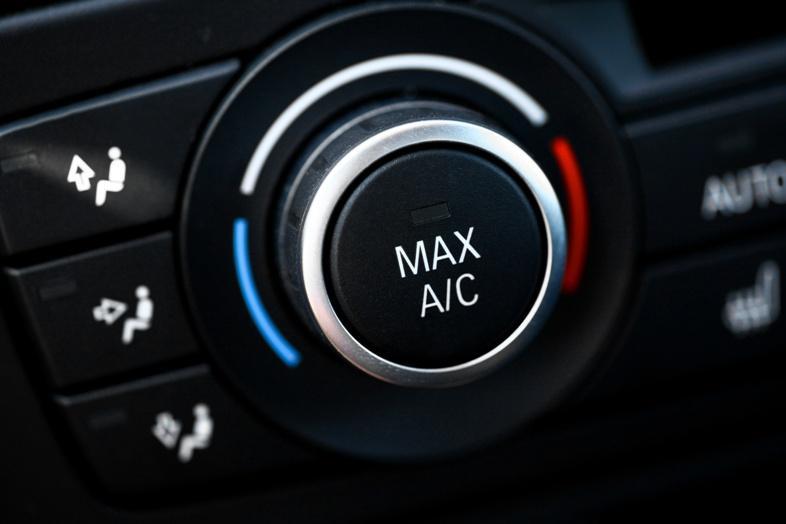How Much Does It Cost To Get Car Ac Fixed

The sound of a sputtering air conditioner in the dead of summer is enough to make any car owner cringe. A functioning AC system isn't just about comfort; it's crucial for safety, reducing driver fatigue and maintaining focus. But when that cool air turns lukewarm or stops altogether, the inevitable question arises: How much is this going to cost me?
Factors Influencing AC Repair Costs
Determining the cost of AC repair isn't a straightforward process. Several factors contribute to the final bill, making a precise estimate difficult without a proper diagnosis. Understanding these factors can help you anticipate expenses and discuss potential issues with your mechanic more effectively.
- Refrigerant Leaks: The most common AC issue is a refrigerant leak. Refrigerant, like R-134a (the standard in many older vehicles) or R-1234yf (used in newer models), is essential for the cooling process. Leaks can occur in hoses, condensers, evaporators, or compressors. The cost varies depending on the type of refrigerant (R-1234yf is significantly more expensive), the amount needed to refill the system, and the labor involved in locating and repairing the leak. A simple recharge after fixing a minor leak could be relatively inexpensive, while replacing a major component that's leaking could substantially increase the cost.
- Compressor Failure: The compressor is the heart of the AC system, responsible for circulating the refrigerant. A failing compressor can manifest in various ways, including weak airflow, unusual noises, or a complete lack of cooling. Compressor replacement is one of the more expensive AC repairs, as the part itself can be costly, and the labor involved is considerable. Moreover, a compressor failure can contaminate the system with debris, necessitating a flush and potentially the replacement of other components like the orifice tube or expansion valve.
- Condenser Issues: The condenser dissipates heat from the refrigerant. Located at the front of the car, it's vulnerable to damage from road debris. A damaged or clogged condenser can hinder cooling efficiency. Replacement costs depend on the vehicle model and the complexity of the installation.
- Evaporator Problems: The evaporator absorbs heat from the cabin air, cooling it down. It's located inside the dashboard, making it a labor-intensive component to replace. Evaporator leaks are often difficult to detect and diagnose. Consequently, replacing an evaporator is typically one of the costliest AC repairs.
- Electrical Problems: Issues with wiring, relays, fuses, or the AC control module can disrupt the system's operation. Diagnosing electrical problems can be time-consuming, contributing to the overall labor cost.
- Other Components: The AC system includes other components like the expansion valve (or orifice tube), receiver drier (or accumulator), and various hoses and sensors. Any of these components can fail and require replacement.
Typical Cost Ranges
Given the varied nature of AC repairs, providing exact figures is challenging. However, here's a general breakdown of cost ranges for common AC issues:
- Refrigerant Recharge: $100 - $300 (depending on refrigerant type and quantity)
- Leak Repair (minor hose or fitting): $150 - $400
- Compressor Replacement: $500 - $1200+ (includes the compressor, labor, and potentially a system flush)
- Condenser Replacement: $300 - $800
- Evaporator Replacement: $800 - $1500+ (due to extensive labor)
- Electrical Diagnosis and Repair: $75 - $200+ per hour for labor, plus the cost of parts
These are just estimates, and the actual cost can vary significantly based on your vehicle's make, model, location, and the specific repair shop you choose. Luxury vehicles and those with complex AC systems tend to have higher repair costs.
Getting an Accurate Estimate
The best way to determine the cost of fixing your car's AC is to get a comprehensive diagnosis from a qualified mechanic. Be wary of shops that offer to "top off" the refrigerant without first identifying and repairing the leak. This is a temporary fix that will ultimately cost you more in the long run. A reputable mechanic will perform a thorough inspection of the system, including a pressure test, leak detection using dye or electronic sniffers, and a visual examination of all components.
Once the mechanic has identified the problem, they should provide you with a detailed estimate outlining the necessary repairs, the cost of parts, and the labor charges. Don't hesitate to ask questions and get a second opinion if you're unsure about the diagnosis or the proposed repairs.
Preventative Maintenance
While not always avoidable, preventative maintenance can help extend the life of your AC system and potentially prevent costly repairs. Consider having your AC system inspected annually, especially before the summer months. This inspection should include checking the refrigerant level, inspecting the compressor belt, and cleaning the condenser fins. Regularly using your AC, even during colder months, can help keep the system lubricated and prevent seals from drying out and cracking.
Addressing minor issues promptly can prevent them from escalating into major problems. A little proactive care can go a long way in keeping your car's AC system running smoothly and saving you money in the long run. Remember, a well-maintained AC system contributes not just to comfort, but also to a safer and more enjoyable driving experience.
